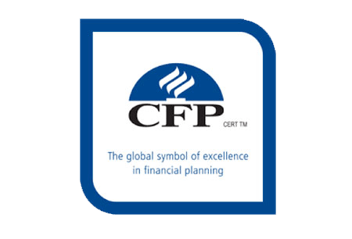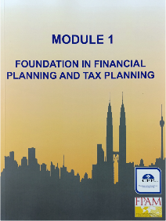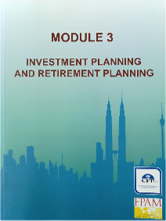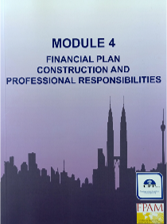
CFP MODULES
Module 1 Foundation in Financial Planning & Tax Planning
Module 2 Insurance Planning & Estate Planning
Module 3 Investment & Retirement Planning
Module 4 Financial Plan Construction & Professional Responsibilities




Modules 1-3 take you through the essential components of a financial plan and what you need to know about developing a plan that works.
The textbook provides pertinent information you must know about each financial planning component.
Our trainer will help you understand and apply financial planning concepts to real-life scenarios tailored to your client's needs and circumstances.
Module 4 takes you through the six- step financial planning process to consolidate everything into a cohesive action plan.
It is about mastering the process of developing customized solutions and incorporating them into an integrated financial plan.
The textbook describes the financial plan development process in detail.
Our trainer will give you case studies to practice and become acquainted with the plan development process.
Modules 1-3
Modules 4
CFP Certification Training Objective
To equip CFP professionals with the knowledge and skills necessary to provide comprehensive financial advice, personalized according to their client's needs, objectives, and priorities.


Introduction to financial planning
Regulatory controls & practices affecting financial planning
Nature & scope of financial planning
The economic environment & its
effectsAnalytical tools for financial planning professionals
Risk management & insurance planning
Investment planning
Taxation planning
Retirement planning & estate
planningThe basis of a financial plan
Code of ethics
Fundamental concepts in risk management
Insurance fundamentals
Legal principles in insurance
Role of insurance in financial planning
Factors affecting life insurance needs
Understanding life insurance policy contracts
General insurance policy
contractsHealth insurance
Annuity policy contracts
Legislation & rules in insurance industry
Consumer protection & codes of practice
Estate planning fundamentals
Wills & will planning
Trust
Power of attorney
Duties & powers of personal
representativeRights of beneficiaries
Estate planning issues for
business owners
Module 1
Foundation in Financial Planning
& Tax Planning
Module 2
Insurance Planning & Estate
Planning




Module 3
Investment & Retirement
Planning
Investment concepts
Concepts of portfolio theory & performance measures
Equity investments Debt
securities investmentsDerivatives & structured products
Collective investment schemes & unit trusts
Real estate investments
Underlying principles of retirement planning
Investment for retirement
Retirement schemes
Employees Provident Fund &
PrivateRetirement Scheme
Retirement income streams
Roles of financial planners in pre-
retirement counselling
Module 4
Financial Plan Construction &
Professional Responsibilities
Financial planning & the regulatory framework
Establishing & defining relationship with client
Gathering client data
Analysing & evaluating client's financial status
Developing & presenting financial planning recommendations
Implementing the financial planning recommendations
Monitoring the recommendations


How Do You Get the Most Out of CFP Certification?
Learn all the modules - Skipping one or two modules may develop gaps in your knowledge that will prevent you from merging financial planning components effectively.
Learn from others- CFP training provides an opportunity to learn from those with different backgrounds and experiences. Be proactive and contribute to class discussions. Always seek others' opinions to broaden your perspective and enrich your understanding.
Unlearn and relearn - CFP training differs from insurance and unit trust training. If you enroll just for the credential, believing you already know everything, you will not learn anything.
Master Time Value of Money - A weak grasp of TVM will limit your ability to analyze and customize solutions. Though most unit trust and insurance advisors learned about TVM, what they have learned is insufficient for developing a comprehensive financial plan.


